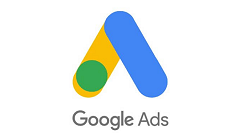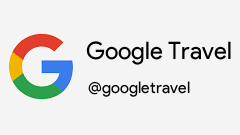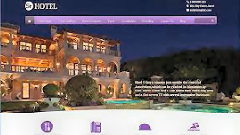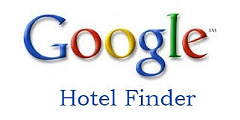New report by Phocuswright for Trivago reveals how business strategies and practices of smaller, nonbranded properties have developed in the past few years, as well as what work still needs to be done for them to be more competitive through improved marketing, distribution and technology.
Data come from a survey conducted by Phocuswright in the spring of 2018 of 1000+ executives of unbranded lodging properties in France, Germany, Italy, Spain, the UK and the USA.
Profile of the respondents:
- Generally small properties: average of 29 rooms in the USA, 22 in Europe
- Most located outside city centers
- Most rely primarily on leisure and domestic business travel
- Most owner-operated: 67% in the USA, 65% in Europe
- Average occupancy 63% in the USA, 61% in Europe
- Property types included vacation rentals, B&Bs/inns, hotels/motels, other.
- Most year-round: 87% in the USA, 65% in Europe.
- Only 6% participating in sales/marketing organizations or voluntary chains
General findings:
- Independent lodging properties get most of their business through online channels: from 70% for German properties to 85% for US properties.
- Potential for direct sales is limited by small marketing budgets: generally less than 2% of room revenue.
- Most are decreasing their dependence on OTAs for business, citing high cost and lack of control.
- Most are increasingly dependent on travel-review and metasearch sites for marketing and distribution.
- Few use sophisticated online customer-relationship or booking technologies.
Perceived effectiveness of marketing channels across country markets (% that rated the channel "most effective"):
- Travel review websites 35%
- Metasearch 32%
- Search engine marketing 20%
- Social media websites 16%
- E-mail 7% (43% do not use)
- Travel bureaus/tourism offices 6%
- Printed guidebooks, brochures, etc. 4%
- Print ads 3%
- TV/radio 2% (60% do not use)
Top 5 distribution channels across country markets:
- Direct website 47%
- Call/walk in 33%
- Metasearch 25%
- Vacation rental 22%
- OTAs 20%
Room revenue by channel (2018 projected):
- OTAs: range of 39% (USA) to 53% (UK)
- Direct: 28% (UK) to 38% (USA)
- Metasearch: 10% (UK, France, Germany) to 15% (Italy)
Metasearch is perceived more favorably by hotels and B&Bs (60+% across all respondents) than by vacation-rental properties (50-60%). (Probably Airbnb (etc.) -related.)
Metasearch share of bookings ranged from 9% (UK) to 14% (USA and Italy).
Top 4 metasearch channels by usage rank order (same for both USA and Europe):
- TripAdvisor
- Trivago
- Google Hotel Ads
- Kayak
TripAdvisor and Kayak are more popular in the USA, Trivago and Google Hotel Ads in Europe.
Most-used technologies (20%+ reporting) across country markets:
- Mobile website 63%
- PMS 37%
- Integrated internet booking engine 33%
- Standalone internet booking engine 30%
- Mobile app - Integrated channel manager/CRS/PMS (TIE) 21%
Mobile share of website revenue (2018 projected): Range of 33% (Germany) to 43% (Italy)
Barriers to technology adoption across country markets - top 5
- Too expensive
- Lack of time to evaluate
- Not aware of available options
- Lack of expertise to implement
- Available systems not intuitive/user-friendly
Perceptions of benefits of working with third-party sales and marketing organizations or voluntary chains (Note usage is low: 3% to 19%):
- Access to better marketing knowledge and competencies
- Easier than doing in-house
- Access to superior technology
- Opportunity to learn from those more experienced
- More visibility to customers otherwise unreachable
- Better access to international markets
- Connectivity to distribution channels that are otherwise unreachable
- Higher occupancy and ADR
Perceived downsides of working with third-party marketers:
- More expensive or of lower value than doing in-house
- Loss of control over decisionmaking
- Added complexity would be counterproductive
- Third-party organizations not effective for my type of property
Challenges facing independent lodging properties:
- Low occupancy
- Low marketing spend
- Primitive marketing and distribution technology
- Channel consolidation reduces competition and diversity of risk
- Inability to capture customer data that could be used in marketing
========================================================
Comments:
- Increasing adoption of online marketing and distribution by independent lodging properties is a good thing - ROI surely beats anything offline - but growing dependence on a small number of ever-consolidating channel partners - who essentially own the customers and their information useful in marketing - is not.
- Notice that search engine marketing is a solid #3 in the list of channels perceived to be effective. Using a reputable SEM firm - most small properties can't afford do do this competently in-house - hoteliers should themselves own any customer data coming from that source.
- It's a sad commentary on tourist boards that only 6% of executives surveyed named tham as their "most effective" marketing channel. These are the kinds of busineses that should be benefiting most from their local and regional tourist boards.
- Respondents in both the USA and Europe ranked TripAdvisor as #1 metasearch channel. But it remains to be seen how effective the new-and-improved TripAdvisor will be in future.
- 37% of respondents don't have mobile-friendly websites. They need to fix that fast. Competitors who do are getting 33% - 43% of their website revenue from mobile users.
- Regarding use of third-party marketing and distribution services: Look at the lists of Perceived Benefits and Perceived Downsides. Which list is more compelling? Benefits, hands down. If hoteliers aren't acting on these potential benefits, maybe third-party marketers, distributors and technologists need to do a better job of helping potential clients understand the operational and economic benefits of outsourcing functions that are too complex and expensive to bring in-house.
Go here for more on how Google Ads and SEO will up your tourism game.

 - David
- David







Comments on State of online marketing and distribution of independent lodging properties in 2018